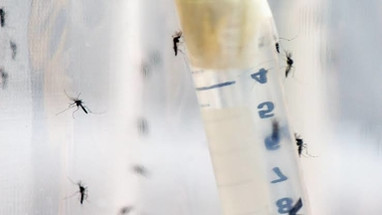12th Jun 2019
Integrated Mosquito Management Programs
Who's down with IMMP?
In an AMCA webinar on January 21, 2009, presented by Dr Janet McAllister currently employed by the Center for Disease Control and Prevention in Ft. Collins with the Division of Vector-Borne Infectious Diseases conducting field and laboratory research on important vectors of West Nile Virus concentrating on their control and insecticide resistance.
An Integrated Mosquito Management Program (“IMMP”) is part of a wider concept called Integrated Pest Management (“IPM”) which has been around for decades. There are multiple definitions of an IPM which can be confusing but at its simplest, IPM is:
“The optimization of pest control in an economically and ecologically sound manner.”
Dr McAllister emphasized the importance of all districts/counties/states taking responsibility for any issues there are with pest control in their area. This can only be done with the public taking some responsibility and advising the appropriate agency of the issues they are experiencing.
Effective IMMP programs are made up of the following:
- Surveillance - Capturing and testing of the species to find out what you are dealing with. There are many species of mosquito which may require different control methods.
- Source Reduction - A mosquito problem in your yard can most often be attributed to a bigger problem in your neighborhood. Identifying those areas is very important. For example:
- Wetlands, marshes
- Storm water retention drains that have gathered rubbish and may be blocked causing stagnant water is perfect for mosquitoes to breed in
- Rubbish/sanitation issues possibly causing water retention could be in a backyard or a landfill.
- Green pools. Dr McAllister commented that given the housing market slump this is particularly bad in the South and West at present.
- Larvacide – using both biological and chemical ways to treat a mosquito problem while at the aquatic stage of augmentation.
- Adulticide – using chemical sprayers to kill the adult mosquitoes before they have a chance to breed.
Control measures identified by Dr McAllister were:
- Physical – cleaning storm water drains that may be contaminated and ensuring that water doesn’t remain stagnant. If there is ditching in your area that these are checked by the county to ensure there is no contamination which could cause a build up of stagnant water.
- Legal Action – There are local, state and federal laws in place that allow fines to be imposed on those who may be contributing to any pest control issues. If no action is being taken to clean up a yard, you can consult an attorney for advice.
- Larvacide – At the aquatic stage of the breeding cycle we can control the augmentation of mosquitoes. The use of predator fish such as minnows or nematodes (parasitic worm) can be helpful but there would need to be consideration given to any permits that are required and also the high cost of rearing such species.
- Chemical – Dr McAllister emphasized that chemicals used in spraying/fogging play a very important part in the IMMP and can sometimes be the only way to deal with a mosquito problem such as after a hurricane.
Dr McAllister also commented on the need for the public to be aware and play their part in an IMMP. Should you notice anything that could be adding to the mosquito problems in your area (e.g. water buildup in ditching or storm water drain contamination) it is most important that you notify the relevant authorities so they can inspect and attempt to treat the area. She also emphasized that it is important to take precautions by using products that are available for the domestic market today such as repellants and possibly mosquito traps.

